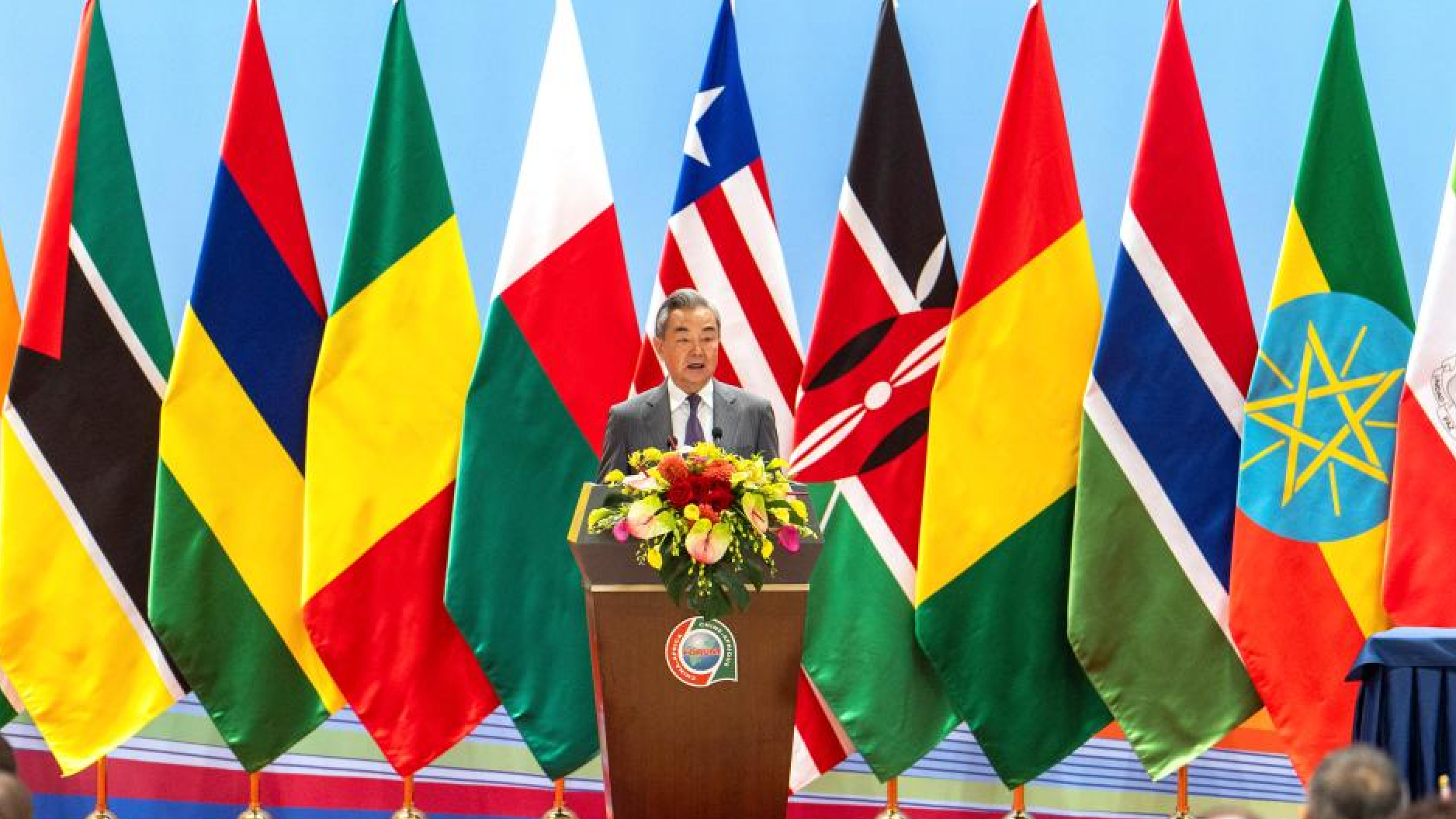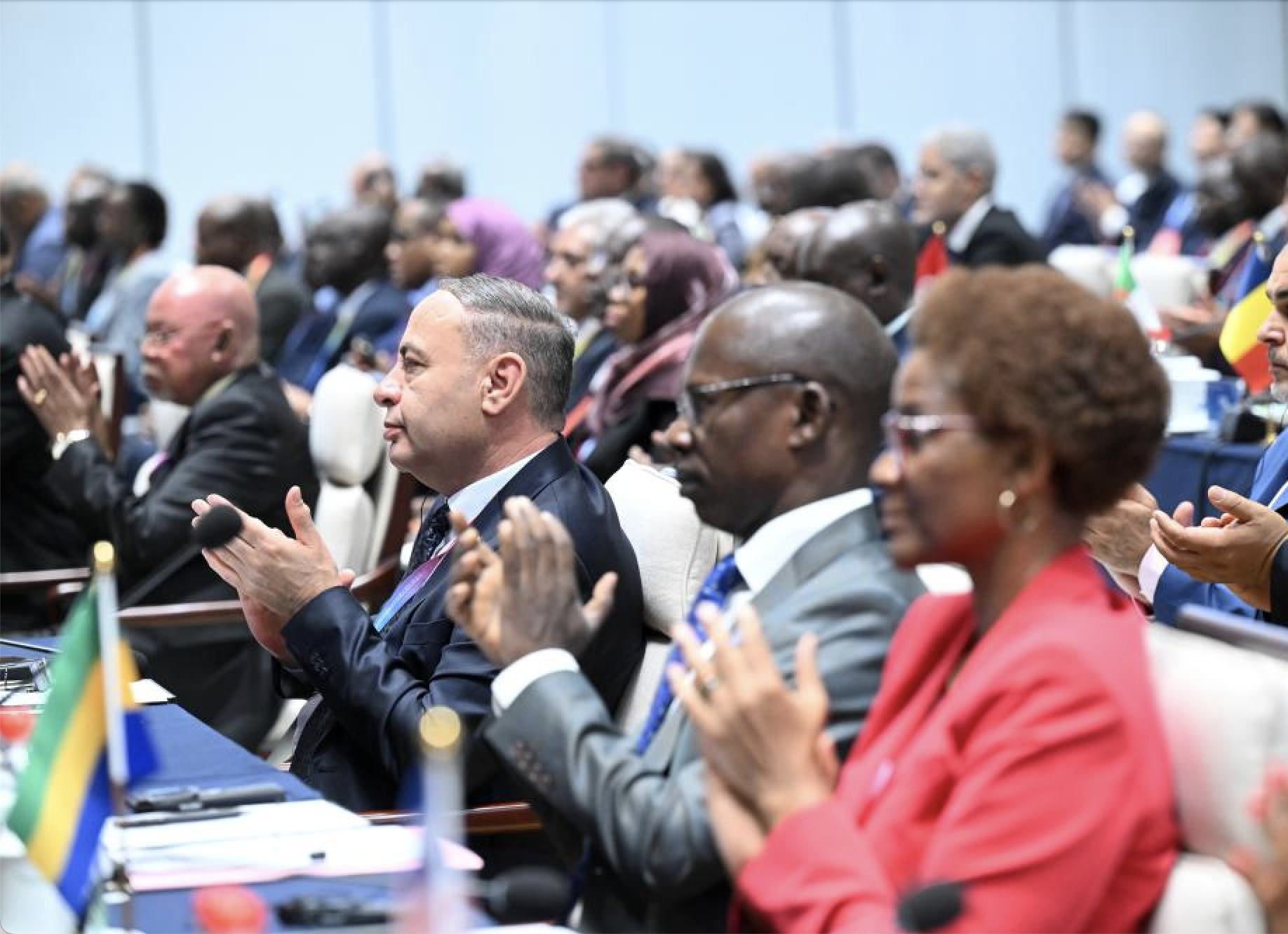by Hoda El Masry

Chinese Foreign Minister Wang Yi, also a member of the Political Bureau of the Communist Party of China Central Committee, speaks at the Ministerial Meeting of Coordinators on the Implementation of the Follow-up Actions of the Forum on China-Africa Cooperation (FOCAC) held in Changsha, Central China’s Hunan Province, June 11, 2025. /CFP
Editor’s note: Hoda El-Masry, a special commentator on current affairs for CGTN, is a journalist and deputy editor-in-chief of Rose al-Youssef Magazine. The article reflects the author’s opinions and not necessarily the views of CGTN and BRJN.
At a critical moment that reflects deep shifts in global power dynamics, representatives from the People’s Republic of China, 53 African countries and the African Union Commission convened for the Ministerial Meeting of Coordinators on the Implementation of the Follow-up Actions of the Forum on China-Africa Cooperation (FOCAC) on June 11 in Changsha, the capital city of Central China’s Hunan Province, to implement the outcomes achieved at the 2024 Beijing Summit of FOCAC. This meeting marked a major step toward turning strategic commitments into concrete actions that serve the shared interests of the Global South.
Far from being a routine diplomatic gathering, the Changsha meeting stands as a strategic turning point, emphasizing the seriousness of both sides – China and Africa – in moving from declarations to real, long-term implementation. Through the China-Africa Changsha Declaration On Upholding Solidarity and Cooperation of the Global South, both parties reaffirmed their commitment to building a China-Africa community with a shared future for the new era, capable of addressing complex global challenges, from economic instability to geopolitical disruptions, with solidarity and equity.
This meeting also crowned a qualitative shift in China-Africa relations, ushering in a new phase centered on implementing the ten partnership actions for modernization, as agreed during the 2024 Beijing Summit. China, in turn, announced a comprehensive package of support measures, including zero-tariff treatment for 100 percent tariff lines to all 53 African countries having diplomatic relations with China, along with technical and customs facilitation for the least developed nations – paving the way for African products to enter the vast Chinese market more competitively.
What is even more significant is the clear message that this cooperation is not based on aid or charity, but on mutual respect and strategic complementarity. Shared initiatives like the Belt and Road Initiative, the Global Development Initiative, and the Global Civilization Initiative are not mere slogans – they are concrete tools for building a new model of international relations based on mutual benefit and joint progress.
Participants at the Changsha forum also emphasized the need to confront unilateralism and protectionism, which continue to deepen the divide between the Global North and South. Facing the frequent occurrence of unilateralism and protectionism, the declaration called for a genuine multilateralism grounded in consultation and mutual benefit, and for strengthening the roles of the United Nations and the World Trade Organization in restoring balance to the global system.
As the world navigates an era of political and economic uncertainty, the China-Africa partnership demonstrates its potential to offer fair and realistic alternatives. This was echoed in the message of Chinese President Xi Jinping to the meeting, in which he pledged new opportunities for the world through the new achievements in Chinese modernization, and new momentum for Africa and other Global South partners through China’s big market. He outlined a bold agenda that includes cooperation in cutting-edge fields such as green industry, e-commerce, digital payments, science and technology, and artificial intelligence, alongside collaboration in security, finance, and the rule of law.
What happened in Changsha was not simply the technical follow-up to a summit – it was a powerful reaffirmation of a mature, strategic relationship between the world’s largest developing nation and the continent with the most concentrated developing nations in the world. Together, they are shaping a fairer and more inclusive world order.
Through successive FOCAC summits and practical follow-up mechanisms like the Changsha meeting, the forum is proving to be more than just a platform for dialogue. It is evolving into the foundation of a global partnership – one in which Africa and China play leading roles and offer a roadmap for solidarity, shared prosperity, and strategic autonomy across the Global South.

Representatives from 53 African countries and the African Union Commission attend the Ministerial Meeting of Coordinators on the Implementation of the Follow-up Actions of the Forum on China-Africa Cooperation (FOCAC) held in Changsha, Central China’s Hunan Province, June 11, 2025. /CFP
In this context, the China-Africa partnership is gaining a new dimension that goes beyond economics to include cultural and human development. Cooperation is expanding into areas such as education, innovation, and people-to-people exchanges, strengthening long-term mutual understanding and integration. The Changsha Declaration also emphasized the implementation of plans outlined in the Concept Paper of 2026 China-Africa Year of People-to-People Exchanges, highlighting a shared awareness that sustainable development depends on investing in human capital.
China’s support for the African Union’s Agenda 2063 further reflects a strong alignment with Africa’s self-defined vision for growth. This distinguishes the China-Africa partnership from many previous models imposed from the outside. In return, African nations welcome Chinese cooperation as a model of respect and complementarity, not one of dominance or conditionality.
This is precisely where the importance of follow-up mechanisms like the Changsha meeting becomes clear – they are not just checkpoints for progress, but affirmations that both sides are on the right path, guided by a shared commitment to strategic planning and joint action.
What binds China and Africa today is not just a long history of collaboration, but a unified vision for the kind of international order that the people of the Global South aspire to build: one that is just, multipolar, sovereign, and offers equal opportunities for all without imposition. In this light, the Changsha meeting stands as a beacon on that path, and an open invitation for other nations of the Global South to join in a balanced, cooperative, and ambitious global vision.
Source: CGTN
